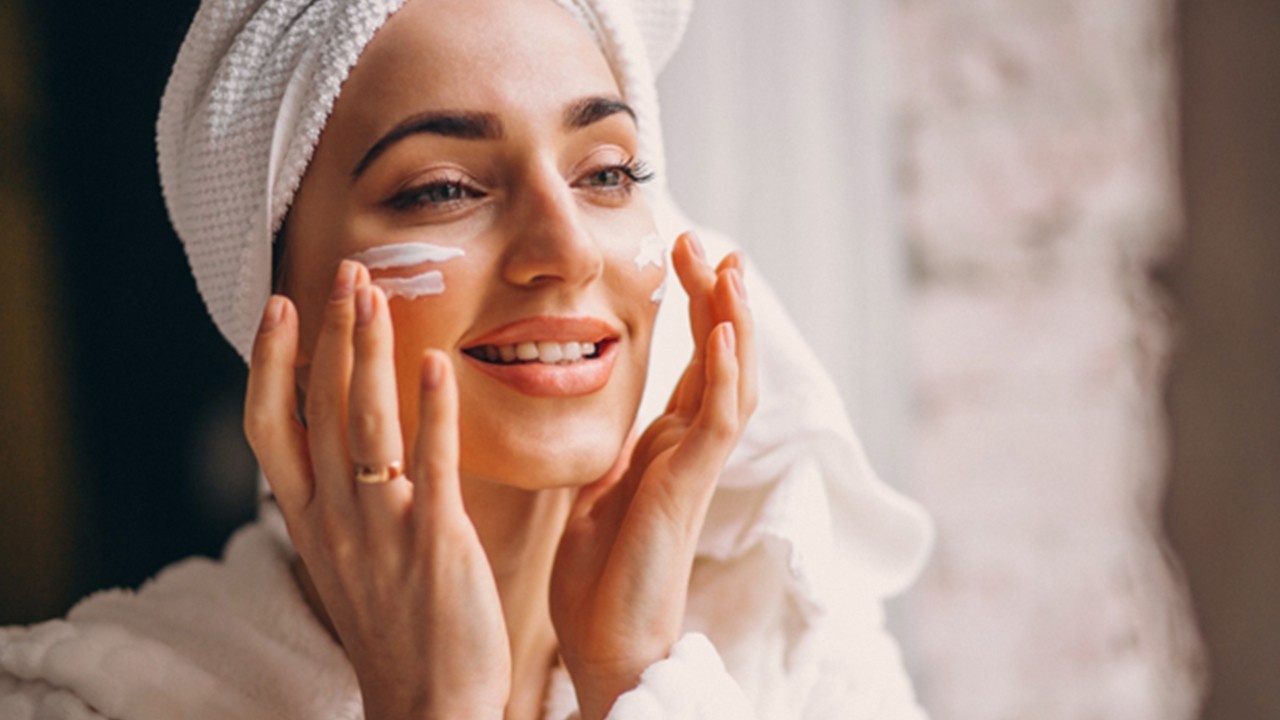In natural aging, the skin becomes thinner and drier with wrinkles and changes in color becoming more evident. Genes are the key determinant of natural changes, and this type of aging is called “intrinsic aging.”
Premature aging of the skin caused by environmental and lifestyle factors is called “extrinsic aging.” The effects of this aging on the skin can be slowed down if some proper precautions are taken.
1. Protect Your Skin From the Sun
According to the Skin Cancer Foundation, photoaging is the main “culprit” of accelerated skin aging, which is caused by exposure to sunlight and ultraviolet (UV) rays.
The UV rays can penetrate deep into the dermis, destroy collagen fibers, increase the production of abnormal elastin, and lead to the production of metalloproteinase—an enzyme that rebuilds damaged collagen often malfunctions and degrades collagen, resulting in abnormal skin remodeling. The reconstructed skin will wrinkle, and the depletion of collagen will lead to accelerated aging of the skin.
2. Apply Sunscreen and Moisturizer Daily
Wearing sunscreen every day not only protects against skin cancer but also against the signs of photoaging. Regular use of sunscreen can prevent photo damage for a longer period.
Dr. Palm recommends using a sunscreen that contains zinc oxide and/or titanium dioxide, which provides extended coverage against UVA rays and with a sun protection factor of at least 30.
Using a moisturizer, like sunscreen, is an important part of a daily skin-care routine. Moisturizers lock moisture into the skin to help make it look younger.
3. Quit Smoking and Moderate Alcohol Consumption
Smoking can greatly accelerate the rate of skin aging, leading to wrinkles and a dull, sallow complexion. Moreover, alcohol can dehydrate and damage skin, lending to an older appearance.
4. Moderate and Regular Exercise
Moderate exercise can improve blood circulation and strengthen the immune system, lending to a more youthful appearance in the skin. Studies have shown that exercise helps reduce skin aging, and these changes are associated with improvements in the tissue’s mitochondria.
5. Maintain a Healthy, Balanced Diet
A 2020 study published in Nutrients shows that nutrition is closely related to skin health. Nutritional levels and dietary habits can repair damaged skin or cause damage to the skin. Clinical and epidemiological studies have demonstrated that nutritional levels and dietary habits have an impact on skin health and aging.
Even people who are already showing signs of premature skin aging can benefit from lifestyle changes. For example, protecting the skin from the sun gives it chance to repair damage. People who quit smoking also notice that their skin looks healthier. It’s never too late to start!
If you are experiencing increasingly severe signs of skin aging, such as wrinkles, sagging skin, age spots, or texture changes, it may be beneficial to consult with a dermatologist.
It is important to remember that skin aging is a natural process, but with proper care, it is possible to improve the appearance of aging skin and promote skin health.








